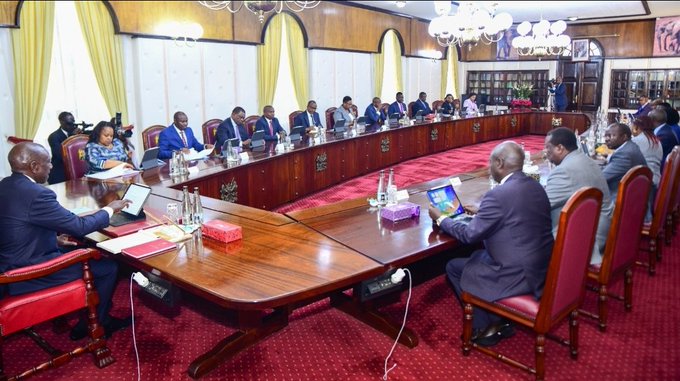The Government of Kenya is set to privatize the Kenya Ports Authority (KPA) along with other state entities in a move towards divestiture, concessions, and leasing.
According to the state, the privatization plan, which is part of a broader initiative involving twenty-five entities, awaits approval through a cabinet paper presented by Treasury Cabinet Secretary Prof. Njuguna Ndung’u.
The entities in the initial phase include the Kenya Meat Commission, Kenya Pipeline Company, Consolidated Bank, KPA and Development Bank of Kenya.
The Cabinet approved the Privatization Bill, 2023 in May this year, which gave power to the National Treasury to privatize public-owned enterprises without the approval of Parliament.

President William Ruto articulated his plan during his visit to the Nyanza region. “I have made a commitment that between five and 10 public enterprises that are mature should be listed in the next 12 months.”
Also Read: High Court Stops Kenya from Deploying Police to Haiti
Additionally, five state sugar millers – Chemilil, Sony, Nzoia, Miwani, and Muhoroni Sugar companies – are set for leasing.
Several government-affiliated hotels are also on the divestiture list. The government further seeks to reduce its shares in companies like KenGen, East Africa Portland Cement, and the National Bank of Kenya.
Privatization Authority
This significant development follows President William Ruto’s recent assent to the Privatization Bill 2023.
“I expect that the private sector will collaborate with the capital markets to facilitate the listing of private sector companies on the stock exchange,” noted Ruto.
He stated that entities in the initial privatization phase must submit comprehensive audit disclosures or face penalties ranging from Ksh5 to Kshh10 million.
Moreover, the Privatization Act 2023 is now set to become a reality as CS Ndung’u prepares to establish a nine-member board for the newly formed Privatization Authority, renamed after the Privatization Commision.
A nominee from the President, Cabinet Secretary, or Principal Secretary will lead the authority.
Molo Member of Parliament Kimani Kuria, who chairs the National Assembly’s Finance and Planning Committee overseeing public participation in the Privatization Bill 2023, however, emphasized the need for transparency.
Opposition against Privatization of entities
Despite these developments, opposition leaders have raised concerns about the privatization, expressing doubts about its credibility and transparency.
Azimio leader Raila Odinga had earlier outlined the opposition’s stance against this move stating, “We as Azimio vehemently oppose the Privatization of the Port of Mombasa.”
Moreover, National Assembly Minority Leader Opiyo Wandayi, questioned whether the program would have adequate parliamentary oversight.
“What will stop the new managers from repeating the same mistakes? We must deal with past historical injustices,” he said, highlighting the need to address past economic injustices.
Also Read: Government Announces Jobs for Certificate, Diploma, Degree Holders
Moreover, the 2010 Constitution gives Parliament, both the Senate and National Assembly, powers to check the decisions made by the Executive.













































































